Genesis & Ideology Of Pakistan | Pakistan Affairs Notes
The history of mankind makes tragic reading. Down through the ages, we come across a series of sequences of the rise, growth, decline and fall, not only of nations but even of their civilizations and cultures. No doubt, man has all along shown a remarkable constructive genius, having attained many an awe-inspiring successes, despite occasional set-backs and natural catastrophes, but his constructive genius was always undermined by some inherent weakness underlying his ideas, or his way of life which ultimately brought about a disastrous end to his efforts. Nevertheless, there have been some notable exceptions in the series of sequences when the idea of universal welfare of mankind took practical shape, but the main characteristic in all those civilizations, always remained one of frustration. Man struggled hard to find some satisfactory solution to his problems, but failed. Human intellect, limited as it is helped him little, because it is not aware of any source of knowledge other than itself. There was only one guide left for mankind in this difficult quest; and that confidently proclaimed competency to lead them to their goal:” The God that has created all the objects in the universe has also undertaken to make them aware of their goal and guide them towards it, (20:50) The guidance, which comes directly from God, is known as “Revelation”. It has all along been revealed to mankind through the agency of various Anbiya. But, unfortunately, due to the ravages of time and human tampering with it, the text of the Scriptures, the message delivered by the pre-Islamic Anbiya, could not be preserved long in their original form. Eventually, about fourteen centuries ago, the complete and final version of that Guidance was revealed to mankind through Mohammed (P.B.U.H.), the last of the series of Anbiya. This version of the Divine Guidance is embodied exactly in its original form in the Quran.
The responsibility of the prophet, to whom Divine Guidance was revealed, was not only to communicate his revelation to others, but also to establish a socio-economic order in the light of that Guidance. Our Holy Prophet—Mohammed (P.B.U.H.) –established this order which fully recognized dignity of all human beings (17:70). The pursuit of individual interest was replaced by the ideal of the good of the humanity at large. Oppression and exploitation were abolished and justice and equity prevailed. The dependence of man and the subjugation of one over another were brought to an end. Every individual was assured the proper satisfaction of these needs. He, thereby, led a full life of satisfaction, peace and harmony. He did not owe obedience to any person or power, except the Divine Laws enshrined in the Quran. Briefly, that order completely put an end to the rule of man over man. In any form, and with it the evil of capitalism. This order was called Deen in the Quranic terminology.
Check also: Pakistan Affairs MCQs
This social order prevailed during the lifetime of Muhammad (P.B.U.H.) and for some time thereafter, when the forces of exploitation began to raise their first success with the establishment of Mulukiyyat-kingship–sustained by capitalism. To ensure their survival and consolidation, these forces availed themselves of the co-operation of men who appeared in the robes of piety and spoke in the name of God. They posed as the interpreters of God’s Will and thus distorted principles and tenets of Deen which no longer remained a living force in the society and were reduced to a set of soul-less beliefs, lifeless dogmas and realities of life. They framed rules and laws to suit the purpose of monarchy, and sought to keep the common man entangled in the labyrinth of these dogmas and rituals, and the exploiters, religious as well as temporal, were left free to maintain their stranglehold upon the defrauded masses/ This was the metamorphosis of Deen into Mazhab, which word, by the way, does not occur anywhere in the Quran. The Book of Allah, however, remained intact, since Allah has taken Himself, the responsibility of its preservation Himself, although it was never allowed to play any part in the practical life of the Muslims.
This state of affairs prevailed throughout the Muslim countries for centuries together where Mazhab was accepted as true Islam. We should, however, consider ourselves fortunate in as much as a voice was raised in our time and from our own country, to distinguish between Deen and Mazhab, and the Ummah was called upon to revive true Islam in the light of the Quran. This was the voice of Iqbal, the great thinker, and still greater scholar of the Quran. This, he said, was possible only if we had a piece of land in which a State was established purely on the lines indicated by the Quran, thereby wiping out completely the rule of man, in any form, be it capitalism or priest craft. This scheme of his he pronounced in his Presidential Address of All-India Muslim League Session at Allahabad, in 1930. Such a State, he said:
Check Also: Unveiling Pakistan’s Nuclear Capabilities
Would mean security and peace for India resulting from an internal balance of power, and for Islam an opportunity to rid itself of the stamp that Arabian Imperialism was forced to give it, to mobilize its law, its education, its culture, and to bring them into closer contact with its own original spirit and with the spirit of modern times.
Two years later, while addressing the nation at the Annual Session of the All-India Muslim Conference at Lahore, on 21-3-1932, he said:
The possibilities of the faith you represent are not yet exhausted. It can still create a new world where the social rank of man is not determined by his caste or color, or the amount of the dividend he earns, but by the kind of life he lives; where Capital cannot be allowed to accumulate so as to dominate the real producer of wealth. This superb ideal of your faith, however, needs emancipation from the medieval fancies of theologians and legists. Spiritually, we are living in a prison-house of thoughts and emotions which, during the course of centuries we have woven round ourselves. And be it further said to the same of us– men of older generation– that we have failed to equip the younger generation for the economic, political and even religious crises that the present age is likely to bring. The whole community needs a complete overhauling of its mentality in order that it may again become capable of feeling the urge of fresh desires and ideals.
This point, i.e. to get rid of the “manmade Islam” was so basic and important that he laid emphasis on it time and again. In his famous six lectures, he elaborated the theme in the words of Grand Vizier of Turkey, Said Haleem Pasha, who had said:
During the course of history, the moral and social ideals of Islam have been gradually de-Islamised through the influence of local character, and pre-Islamic superstitions of Muslim nations. These ideals today are more Iranian, Turkish, or Arabian than Islamic. The pure brow of the principal of tawhid (obedience to the Book of Allah alone) has received, more or less, an impress of heathenish and the universal and impersonal character of the ethical ideals of Islam has been lost through a process of localization. The only alternative open to us then is to tear off from Islam the hard crust which has immobilized an essentially dynamic outlook on life, and to rediscover the original verities of freedom, equality and solidarity with a view to rebuild our moral, social and political ideals out of their original simplicity and universality (Iqbal: Reconstruction of Religious Thought in Islam)
This was the purpose to be achieved, for which Allama Iqbal had given the idea of acquiring a piece of land to establish therein a State which could be identified as a true Islamic State — a State built on the foundations of Quran. This was to be a unique State amongst various States of the world.
One of the fundamental factors which makes an Islamic State unique amongst various States of the world, whatever their form of Government, is its principle of law making. As already stated, according to the Quran, all human beings are equal and worthy of equal respect and dignity. It necessarily follows, therefore, that no man has the right to exploit another man or to use him as a means in furthering his personal interests. If society were organized on this basis, there would be neither rulers nor the ruled; none would be permitted to compel others to obey him. Allah alone would be obeyed. Says the Quran:
“It behemoth not a man that Allah should give him the Book of Law, power to judge, and even Nubuwwah, and he should say to his fellow beings to obey his orders rather than those of Allah.” (3:78)
The Quran forbids man to arrogate to himself the right to rule over other men: and yet it does not advocate a lawless, anarchical society. What it does is to lay down the principle that Allah alone has the right to rule over them (12:40) and none has the right to any share in it (18:26). Sovereignty belongs to Allah alone.
Allah, however, is the Abstract, Transcendental Reality. How can we obey Him if we cannot contact Him? The answer is by observing His Laws as given in His Book. This is why the Rasul was asked to declare:
“Shall I seek other than Allah for Judge, when how it is who hath revealed unto you this Book fully explained?” (6:115)
This book was the criterion to decide whether a State was Islamic or Un-Islamic. Says the Quran:
“Who do not judge by what Allah hath revealed, they are indeed kafirs” (5:44)
The laws, directives, principles and values given by the Quran are complete, final, eternal and un-alterable. None, not even the entire Ummah has the authority to add to, subtract from or make any alteration therein. But it does not prescribe details thereof. With the exception of a very few laws, it demarcates the boundary lines of what is lawful and what is unlawful. These lines no one has the right to transgress: not even the entire community. Within these lines, the Islamic State is free to frame such byelaws, as the needs of the time require. These byelaws are, of course, subject to change and may be revised or even abrogated by the Ummah by mutual consultation (42:38), leaving the boundary lines untouched. This is where an Islamic State differs from the democracy in which the people have unbridled power to frame any laws, whereas, the consultative machinery of the Ummah can frame sub-laws only within the boundary lines framed by the Quran. Iqbal has beautifully narrated this unique feature of the Islamic State. He says in his Lectures:
The ultimate spiritual basis of all life, as conceived by Islam, is eternal and reveals itself in variety and change. A society based on such a conception of reality must reconcile in its life the categories of permanence and change; it must possess eternal principles to regulate its collective life; for the eternal gives us a foothold in the world of perpetual change. (Reconstruction of Religious Though in Islam)
Iqbal has touched upon this very subtle, yet most important point with reference to political system of Islam, but it takes us far beyond political horizon. The fundamental principle of the reconciliation of the categories of permanence and change is not confined to the process of law making. It is the very essence of Islam and can be appreciated only when the Quranic concept of human life is thoroughly grasped. There are two concepts of human life — materialistic and Quranic. The materialistic outlook of life treats man as an animal, whose only function is to develop and enlarge his physical existence. It functions under physical laws and is disintegrated and gets extinct with death. It is subject to perpetual change: every moment millions and millions of cells, which constitute human body, are destroyed and replaced by fresh cells. This process of constant change continues till death overtakes him and he ceases to live. Since, according to this concept of life, there is nothing permanent in human life, it stands in need of no Permanent Values, no unchangeable principles, no immutable boundary lines, and therefore, no necessity for Divine Guidance.
According to Quranic concept of life, on the other hand, human body, no doubt develops, flourishes, and eventually disintegrates, under physical laws, but there is something else in man besides his body, that is, his Self or Personality, which is neither physical in its constitution nor is it subject to physical laws as such. It is endowed to every human child in like measure at his birth, but it is only in an undeveloped form. To develop it to its full maturity, and to give it a perfect and balanced shape is the goal of all human activities. Every act of his, performed in accordance with Permanent Values, contributes to its development, and whatever is done against these values, retards this process and weakens the Self. An act, it should be noted, includes thought, wish and desire, as well. The Self or Personality thus developed easily sustains the shock of death and survives the disintegration and dissolution of physical body, and goes on developing further, passing through more evolutionary stages, which we call the “Hereafter” or the life after death. The fact that, not only the actual deeds of a human being but his thoughts, wishes and desires as well, act upon human Personality is what is called the “Law of Retribution” which is as inexorable and immutable as the Laws of Nature.
It is the human personality, which takes decisions, but at the present level of existence, its decisions are implemented through physical body. For this purpose, it is essential that human body should also develop and be in a position to carry out the commands of the personality. For its development, the needs and requirements of human body will change from time to time, whereas human personality, while developing shall remain unchanged. The renowned Polish Thinker, Nicholas Bereave, has beautifully concentrated this in four words, by saying.
Personality is changelessness in change:
The process of the development of human body and Personality can take place only in Islamic Social Order (Deen, as already explained). This order, generally called “Nizam-e-Rabubiyyah”, provides to each and every individual means for the development of both. It will be seen that this system differs basically from all other systems.
Reverting to the principle of law-making, Iqbal examined critically what had been going on in our past history, and said that The teaching of the Quran that life is a process of progressive creation necessitates that each generation, guided but unhampered by the work of its predecessors, should be permitted to solve its own problems.
It follows, therefore, that the general notion that the laws made by our earlier jurists and promulgated in the past are eternal and binding on all future generations is against the basic teachings of the Quran. This was thoroughly explained by Iqbal in his “Sixth lecture”, entitled The principles of movement in the structure of Islam in which he says; The question which is likely to confront Muslim countries in the near future is whether the Law of Islam is capable of evolution a question which will require great intellectual effort, and is sure to be answered in the affirmative; provided the world of Islam approaches it in the spirit of Hazrat Umar (R.A) the first critical and independent in Islam who, at the last moments of the Prophet, had the moral courage to utter these remarkable words: “The Book of God is sufficient for us”.

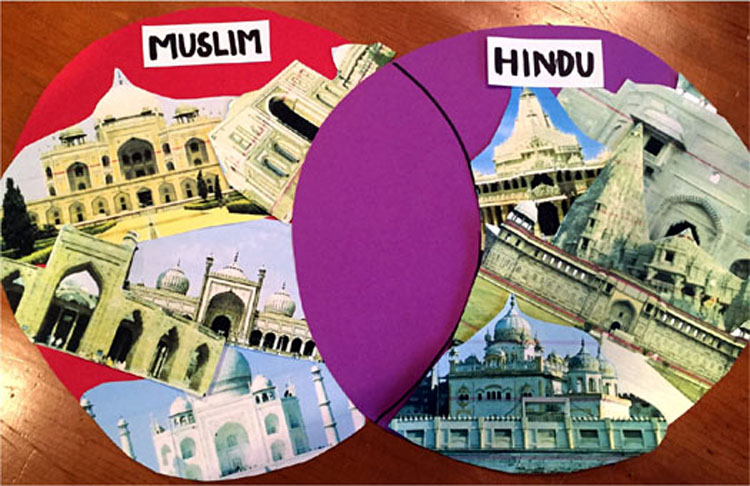
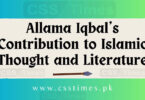
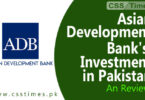

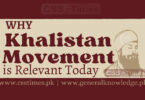
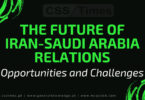

Although the vocabulary used here is little
tought but still its a greatly written master piece!
Laudable.
[…] Check Also: Genesis & Ideology Of Pakistan | Pakistan Affairs Notes […]
[…] Check Also : Genesis & Ideology Of Pakistan | Pakistan Affairs Notes […]